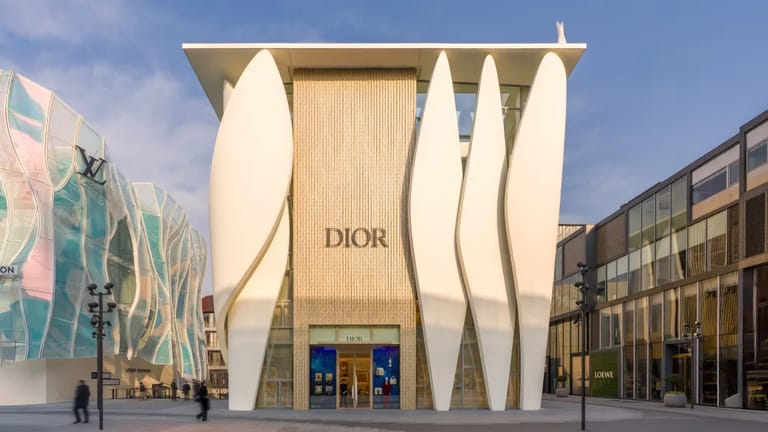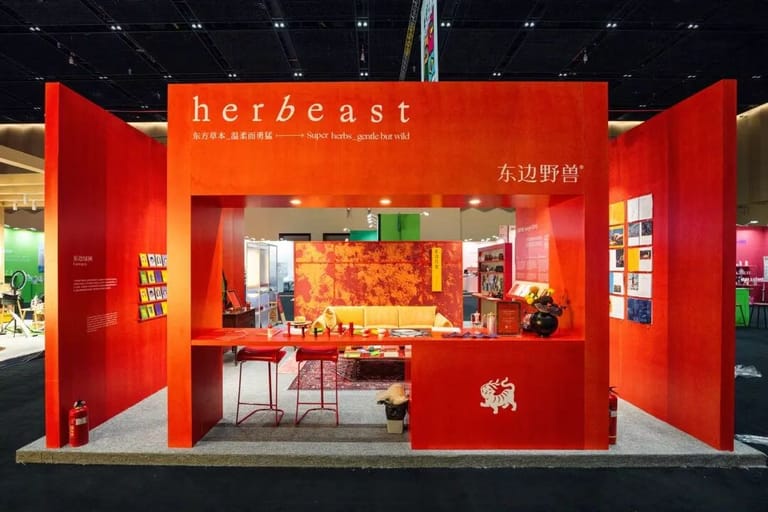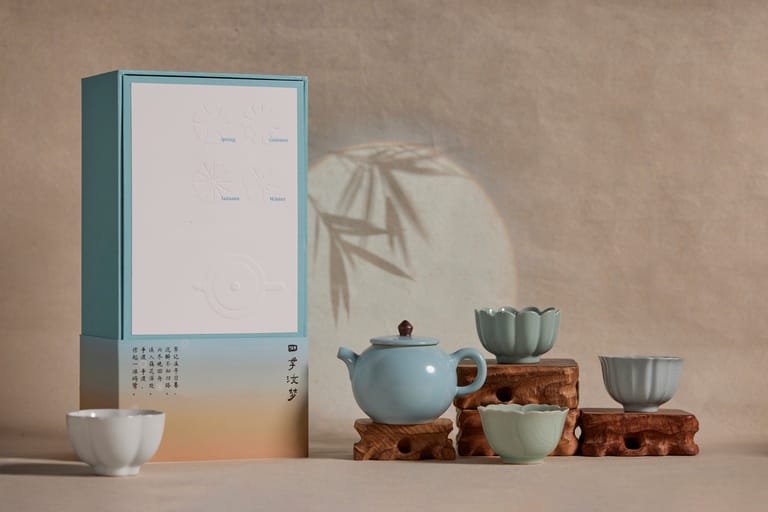Inside Documents’ Vision for Chinese Fragrance Identity
By
Huiyan Chen

Published on
June 11, 2025

Chinese fragrance brand Documents is the latest Jingzhi Brand to be highlighted as a pioneer shaping the jingzhi(精致) narrative on the global scene. Jingzhi Brand spotlights the most forward-thinking domestic and global brands shaping China’s jingzhi(精致) landscape. Through in-depth storytelling, we explore innovation, cultural strategy, and market ambition, offering a holistic perspective on the evolving intersection of brand identity and China’s dynamic consumer economy.
Chinese Fragrance Identity
In May, homegrown high-end fragrance brand Documents unveiled its new flagship, Longgong, at the Dream Center in Shanghai’s West Bund. Anchored in a warm palette of ochre and brown, the space is paved with ceramic bricks crafted from Wuxi clay and 60% recycled ceramic. Rooted in Chinese aesthetics, the architectural language fuses traditional craft with contemporary material logic—featuring ornamental carvings, mortise-and-tenon joints, and other intangible cultural heritage techniques that imbue the space with quiet cultural gravitas.
This confluence of Eastern tradition and contemporary sensibility is not just a stage for showcasing scent, but an effort to channel brand culture into a tangible, experiential format. As China’s fragrance market accelerates, the challenge for local brands lies in maintaining cultural integrity while navigating commercial expansion. In an exclusive interview with Jingzhi Chronicle, Documents founder Meng Zhaoran shares how the brand is negotiating the delicate balance between retail growth, product development, and cultural storytelling—charting a uniquely Eastern path to brand-building.
On “Curated Diversity”
Chinese Fragrance Identity: Documents’ Cultural Vision
For any emerging brand, scaling up its retail footprint marks a critical turning point—signaling its transition from niche to mainstream competition. In the past year alone, Documents has opened 11 new stores, spanning everything from street-level boutiques to luxury department stores, across both tier-one cities and high-potential emerging markets. For a fragrance brand founded less than four years ago, such rapid expansion might appear to be a bold, even aggressive, retail play aimed at increasing market visibility.
But for Meng, physical expansion is not just about square footage; it’s about systematizing cultural output. “We approach store design with a philosophy of ‘curated diversity,’” he explains. “That means maintaining a consistent brand ethos while allowing each location to express itself through locally attuned design.”
In Shijiazhuang, the store channels the rough-hewn texture of the historic Zhaozhou Bridge—a nod to Northern cultural sensibilities. In Harbin, the space integrates industrial motifs that reinterpret the city’s legacy. “Each location is grounded in careful observation of local culture and sensibility. If you visit them in person, you’ll feel the different atmospheres,” says Meng.
One major milestone in this journey is Documents’ entry into premium department stores—a strategic move that places the brand alongside international fragrance houses. “Because of the meticulous attention we’ve paid to our products, content, and service,” Meng explains, “we’re especially excited for consumers with refined and mature shopping habits to experience Documents firsthand. If they fall in love with our scents and textures, that’s one of the most honest ways to test our place in the market.”
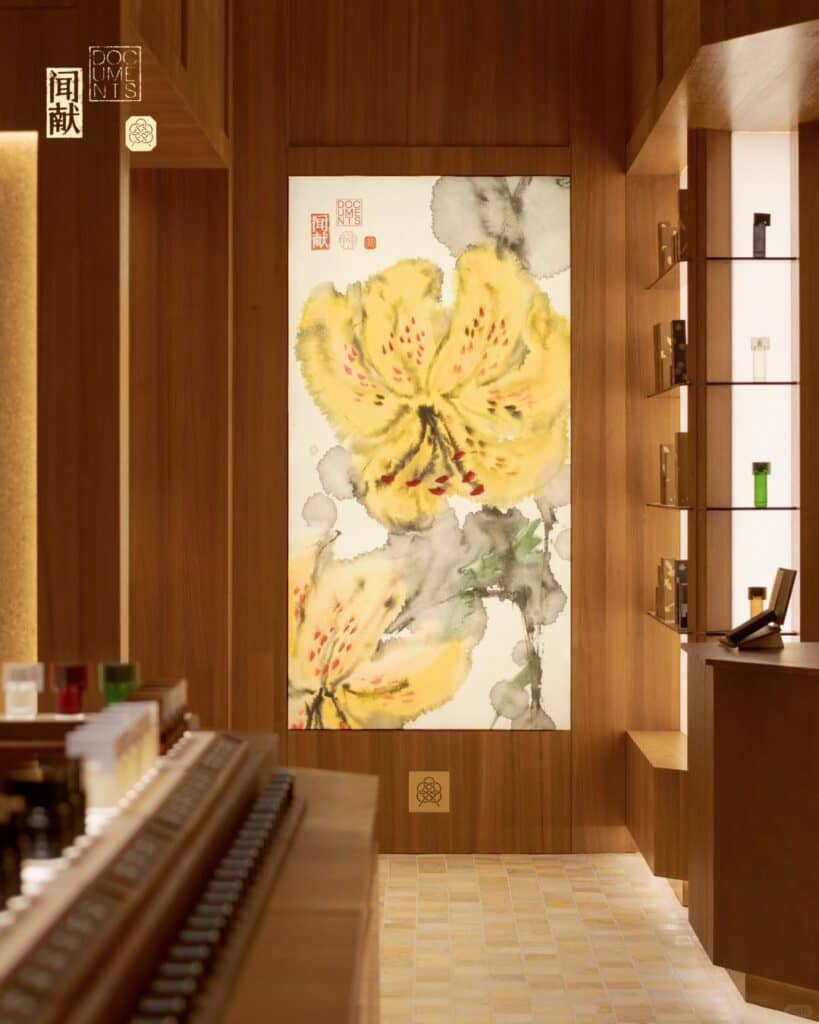
Expanding the Fragrance Ecosystem
Beyond immersive retail, Documents is actively extending its product ecosystem to penetrate more daily-use scenarios. From perfumes and balms to fabric sprays, the brand is targeting not only traditional fragrance enthusiasts but also casual users, making scent an everyday companion.
“Scent should not be reserved for special occasions,” Meng says. “Our multi-category strategy aims to reframe fragrance as part of daily life, not just momentary enhancement.” While some may worry that an expanded price range could dilute the brand’s premium image, Meng sees it differently: “This isn’t about scaling down—it’s a lateral expansion. We haven’t found any real conflict between having a broad price spectrum and maintaining brand identity. If anything, it’s allowed us to welcome a more diverse and high-quality audience.”
At its core, Documents is attempting to transform scent from a simple consumer product into an emotional and cultural vehicle—one that seeps into memory, ritual, and everyday intimacy. Recent gift-set launches reflect this logic, giving rise to a gifting strategy rooted less in marketing and more in cultural expression.
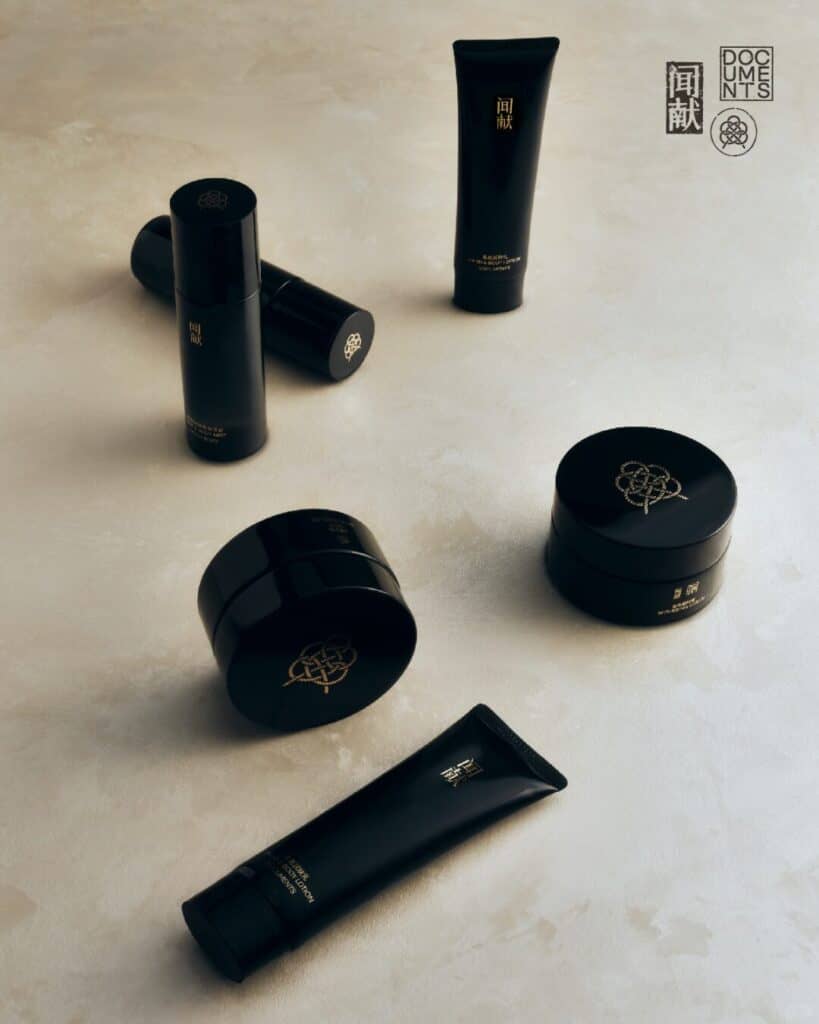
Building on its name, Documents, the brand now champions the tagline: “Chinese Fragrance, Global Gift.” “Li (礼)—or ritual—in Chinese culture has meanings that go beyond the material,” Meng explains. “It’s about tender human connection and a way to express emotion and respect.” He adds, “We don’t view gifting as a sales tactic. It’s a natural extension of our brand ethos. We hope Chinese scents can become a bridge for emotional and interpersonal connection.”
Stretching Cultural Narrative Along a Timeline
Commercial growth aside, Documents continues to invest in long-term cultural capital. At the beginning of this year, the brand launched its Chinese Zodiac series, a long-view cultural initiative that reflects its storytelling ambitions. For 2025 Chinese New Year, Documents collaborated with Chinese perfumer Yili to launch Snake, a concentrated perfume featuring Chinese mint and evoking the sharp coolness of citrus peel and soft powdery accords.
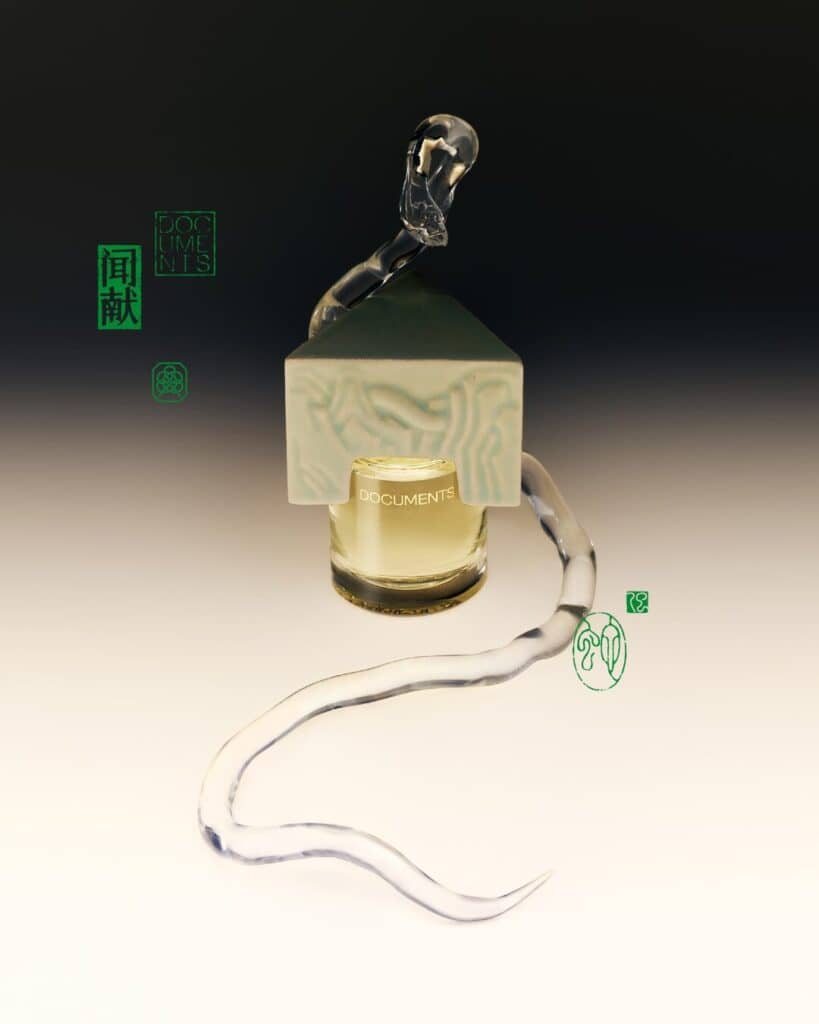
“The twelve zodiac animals are more than folk symbols,” says Meng. “They’re a philosophical lens through which we understand time, nature, and society. For a brand committed to long-termism and rooted in Chinese culture, the zodiac series felt inevitable.”
This initiative also lays the groundwork for global expansion. The twelve-year rollout of zodiac fragrances not only introduces a layered cultural narrative but creates annual memory anchors for international audiences—gradually building a collective association between Chinese culture and premium fragrance.
In brand-building, culture and commerce are often treated as oppositional forces. When the two are pitted against each other, many brands blur the line, letting commercial concerns overshadow cultural expression and reducing it to mere aesthetics. But Documents insists on another path: One where culture is not an afterthought, but the throughline of the entire business.
As Meng puts it: “To us, ‘premium Chinese fragrance’ is not just about luxury or price. It’s about quality born in China, emotional resonance, and cultural significance.”
Stay Connected Through Our Weekly Newsletter







